HS2 rail link: New chairman seeks cross-party backing
- Published
Transport Secretary Patrick McLoughlin says investment in infrastructure other than HS2 is still high
The newly-appointed chairman of the HS2 rail link has said it is essential the £50bn scheme has cross-party support.
Sir David Higgins told the BBC he would be frank with the public about spending on the high-speed line linking London and Birmingham, Manchester and Leeds.
The plans have had the backing of all three main political leaders but are strongly opposed by some backbench MPs.
Shadow chancellor Ed Balls this week hinted Labour might ditch the project over its cost if it regained power.
He told his party conference Labour still supported the idea but suggested alternative options, including improvements to existing lines, may need to be considered.
HS2, which stands for High Speed Two, is intended to allow trains to run at 250mph (400km/h) from London to Birmingham from 2026, with branches to Manchester and Leeds via Sheffield planned for 2033.
The estimated cost of the plan has risen in the past few months from £34.2bn to £42.6bn - plus £7.5bn for rolling stock.
'Ageing Victorian railway'
Sir David, who becomes chairman of HS2 Ltd, the company developing the railway line, told BBC Radio 4's Today programme he hoped to avoid the scheme becoming a "political football".
He said: "I met with the chancellor last week and I said, 'There's only one thing I really need on this project: this has to be bipartisan.'"
Sir David said his current role as chief executive of Network Rail, which operates Britain's rail infrastructure, had taught him how badly the country needs a new train line.
He said: "I think the case to make is 'what's the alternative?'
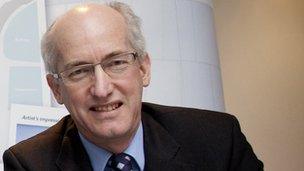
Sir David was formerly chief executive of the Olympic Delivery Authority
"Because if we don't do this, it's patching up for the next 50 years an ageing Victorian railway system, which is operating at a capacity way over what it was designed for."
Australian Sir David, the former chief executive of the UK's Olympic Delivery Authority, also said he had been encouraged by what he had heard from the government about its commitment to the project.
BBC transport correspondent Richard Westcott said by appointing a high-profile figure such as Sir David to help run HS2, the government was making a point that it was sticking by the scheme.
Sir David said he intended to be honest and blunt with the public about the need for HS2 and its costs.
But he also hinted that he was willing to pay high salaries - to "the right people" at "the going rate" - to recruit the best staff for the project.
'Get a grip'
Conservative MP Cheryl Gillan said there were other ways of spending this money to improve transport options.
"I think the coalition government has been forced to try to get some sort of grip on this project, hence they have appointed someone who they think will carry some clout, however to me, it smacks of desperation."
She added that the people who put the scheme forward, such as Mr Balls, were now backing away from it.
Mr Balls's deputy, Rachel Reeves, said: "We would cancel it if we did not think it was good value for money and the costs continue to rise. The government has got to get a grip and get the costs under control."
Transport Secretary Patrick McLoughlin told BBC Radio 4's World At One programme: "Quite often governments are attacked for not planning for the future. This is planning for the future."
He added that commuters would see the benefit right from the first phrase as the new line would take some of the capacity pressure off of the routes into Euston station in London which were currently congested.
Supporters of HS2 argue that apart from shorter journey times, the main argument in favour of the project is the need to greatly increase passenger capacity.
Opponents - including some senior Labour figures such as Lord Mandelson and Alistair Darling - are fighting the plans on a number of fronts, including the cost of the scheme and the effect on countryside areas that the line will cut through.
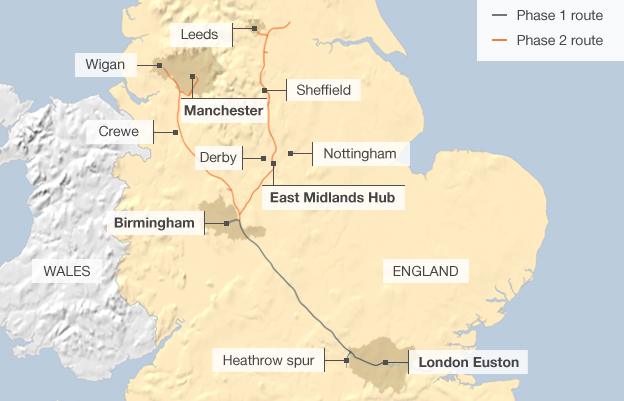
- Published25 September 2013
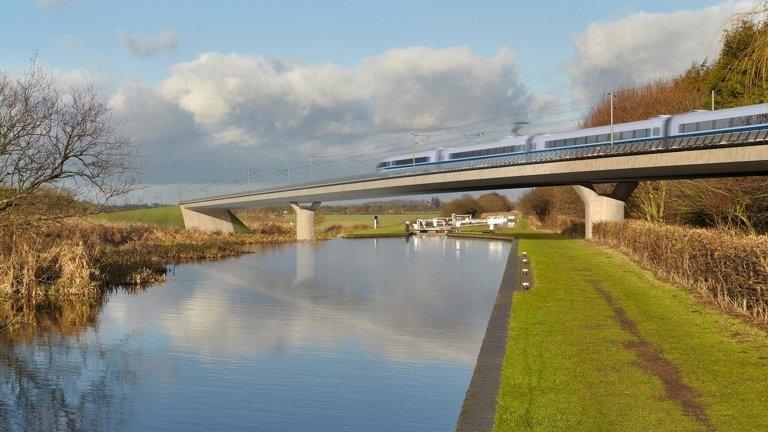
- Published24 September 2013
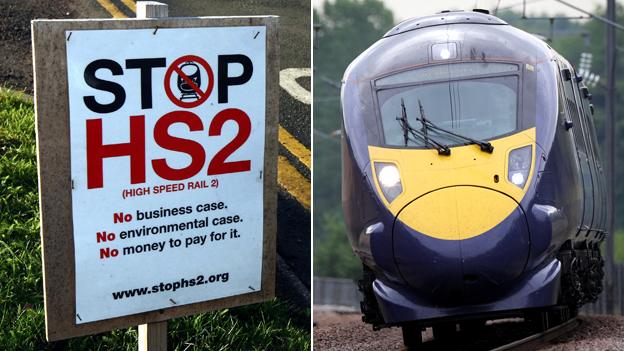
- Published24 September 2013
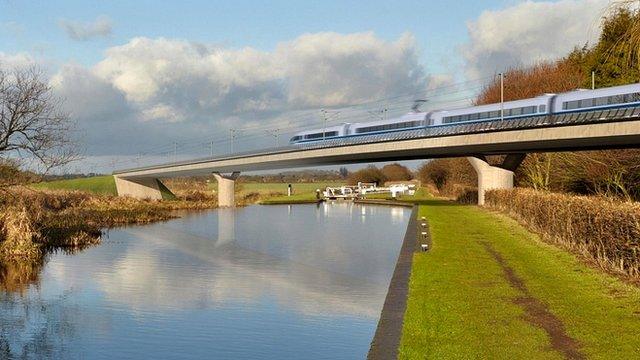
- Published23 September 2013

- Published6 October 2023
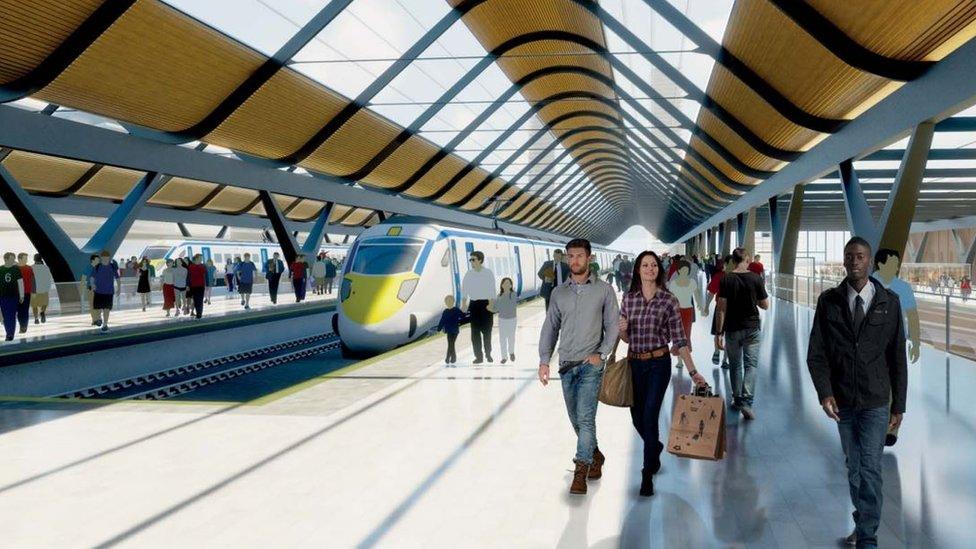
- Published9 September 2013
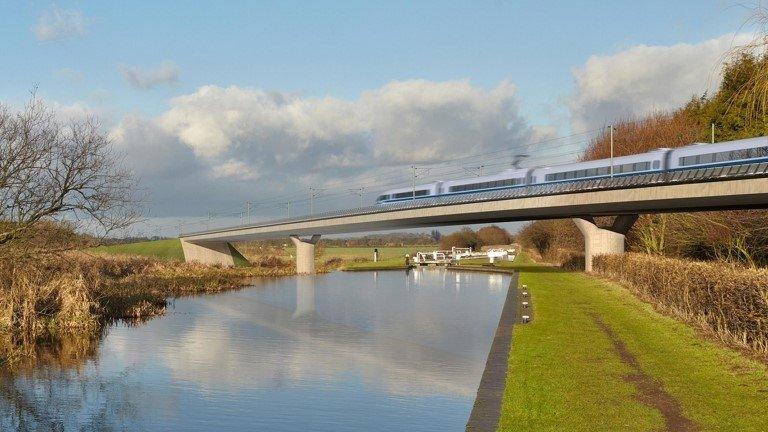
- Published8 September 2013

- Published1 September 2013

- Published27 August 2013
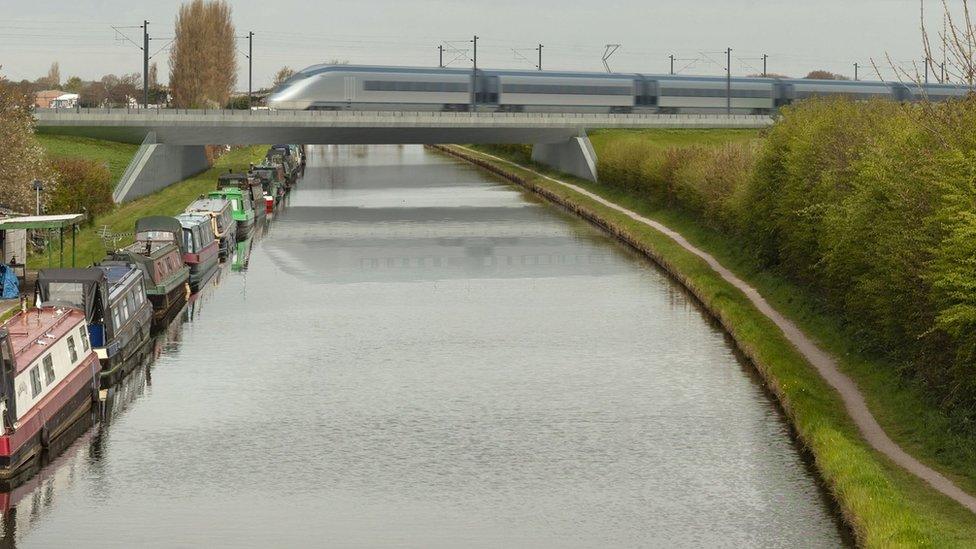
- Published23 August 2013

- Published21 August 2013
